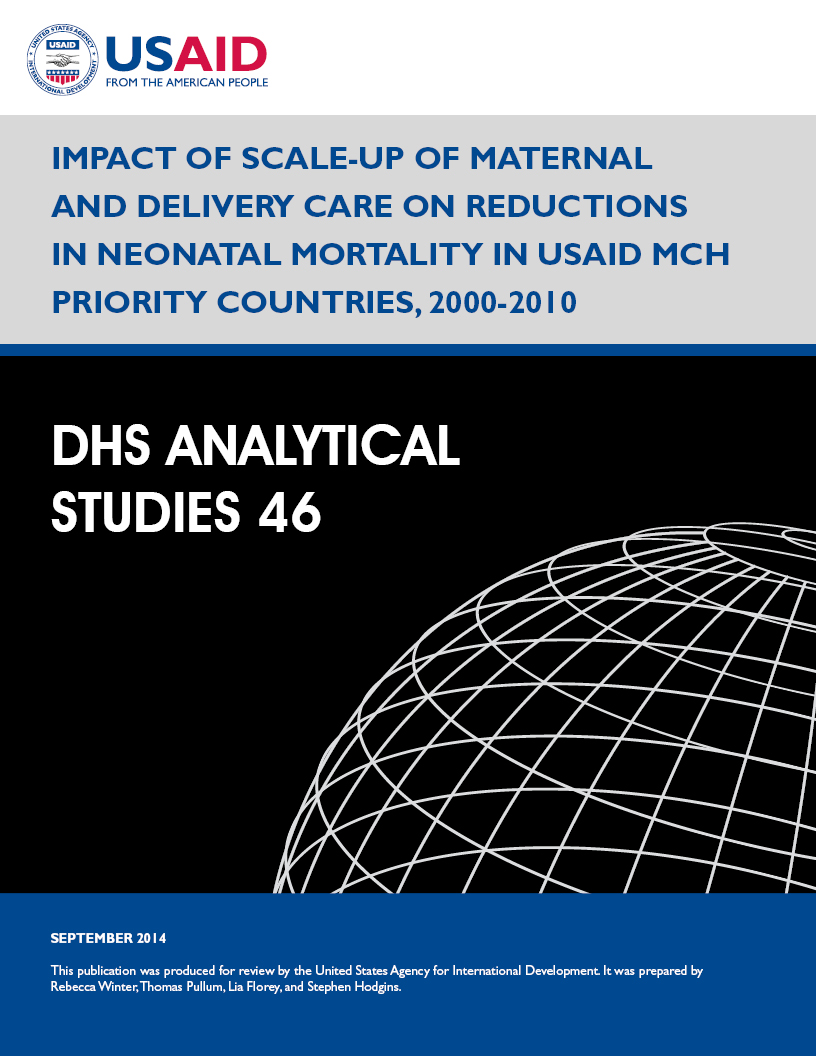- PUBLICATIONS
- JOURNAL ARTICLES
- ACCESS PUBLICATIONS
Publications Summary
- Document Type
- Analytical Studies
- Publication Topic(s)
- Child Health and Development, Infant and Child Mortality, Maternal Health
- Language
- English
- Recommended Citation
- Winter, Rebecca, Thomas Pullum, Lia Florey, and Steve Hodgins. 2014. Impact of Scale-up of Maternal and Delivery Care on Reductions in Neonatal Mortality in USAID MCH Priority Countries, 2000-2010. DHS Analytical Studies No. 46. Rockville, Maryland, USA: ICF International.
- Download Citation
- RIS format / Text format / Endnote format
- Publication Date
- September 2014
- Publication ID
- AS46
Download
 Impact of Scale-up of Maternal and Delivery Care on Reductions in Neonatal Mortality in USAID MCH Priority Countries, 2000-2010 (PDF, 1340K)
Impact of Scale-up of Maternal and Delivery Care on Reductions in Neonatal Mortality in USAID MCH Priority Countries, 2000-2010 (PDF, 1340K)
